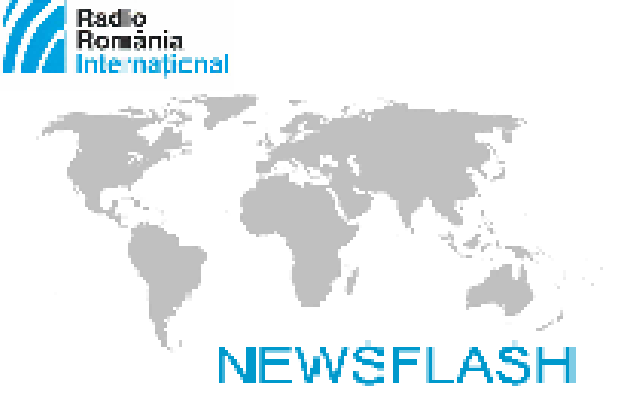April 1, 2015 UPDATE
A roundup of local and international news

Newsroom, 01.04.2015, 12:15
Romania and Turkey have common goals and interests, said president Klaus Iohannis in Bucharest after meeting his Turkish counterpart Recep Tayyp Erdogan. Their talks focused on regional security and bilateral economic cooperation. President Iohannis hailed Turkey’s contribution to the creation of a NATO command centre in Romania. He said Turkey is Romania’s biggest non-EU trade partner and reiterated his country’s support for Ankara’s bid to join the European Union. Recep Tayyp Erdogan spoke about the intensification of bilateral relations and Turkey’s excellent collaboration with Romania within NATO. Erdogan, who was on a brief south-east European tour, had to cut short his visit to Bucharest due an unexpected security situation in Istanbul.
Romania’s Senate has approved a request by the Anticorruption Directorate to expand criminal investigations against resigning Social Democrat finance minister Darius Valcov and another regarding his arrest and pre-trial detention. Valcov is accused of carrying out commercial transactions that were incompatible with his office as minister and Member of Parliament. He is already under house arrest as part of a different case in which he is suspected of receiving 2 million euros to award preferential contracts as a town mayor back in 2008 and 2009. Also on Wednesday, the Chamber of Deputies decided to no longer hold a vote on a request to detain Marko Attila, from the Democratic Union of Ethnic Hungarians in Romania, who had resigned. Accused of abuse of office, he has been in neighbouring Hungary since December.
The National Bank of Romania decided to cut the monetary policy interest rate from 2.25% to 2%, which is a new all-time low. According to the National Bank, the decision aims to secure price stability in the medium run, so as to support economic growth by restoring confidence and boosting lending. The Governor of the National Bank of Romania, Mugur Isarescu, said this may not be the last cut in the key interest rate. He also commented on the tax relaxation measures in the government’s new Fiscal Code, saying they should be sustainable. He added that the Central Bank was closely following the recent developments in Greece and Austria, two countries with large shares in the capital invested in the Romanian banking system, saying it was ready to step in if the banks of these two countries are in difficulty.
Milk production in the European Union is liberalised with the scrapping of milk quotas on 1st of April. As a result, the prices of diary products are expected to drop across the Union. Romanian farmers, who will stage a protest against this measure in Cluj, in the north-west, are afraid they will go bankrupt and that the market will be dominated by multinational diary corporations. According to Romania’s agriculture minister Daniel Constantin, these fears are ungrounded. He says the VAT cut from 24% to 9% for food, including milk, which the government plans to implement in June, will have a positive impact resulting in higher milk consumption. The elimination of milk quotas in the European Union has sparked protests in many EU countries.
The president of the European Council Donald Tusk said on Wednesday that Greece’s economic situation is under control, but that he did not expect an agreement with this country’s international creditors to be reached by the end of April. Greece and its foreign creditors have been unable to reach an agreement to unlock a new tranche of its loan, as the package of reforms proposed by the Greek authorities were described as a set of ideas rather than a concrete plan. Unless it convinces its creditors to disburse further funds, Greece risks running out money in three weeks’ time. At the moment, its foreign debt amounts to 315 billion euros, which accounts for 170% of its GDP.




























